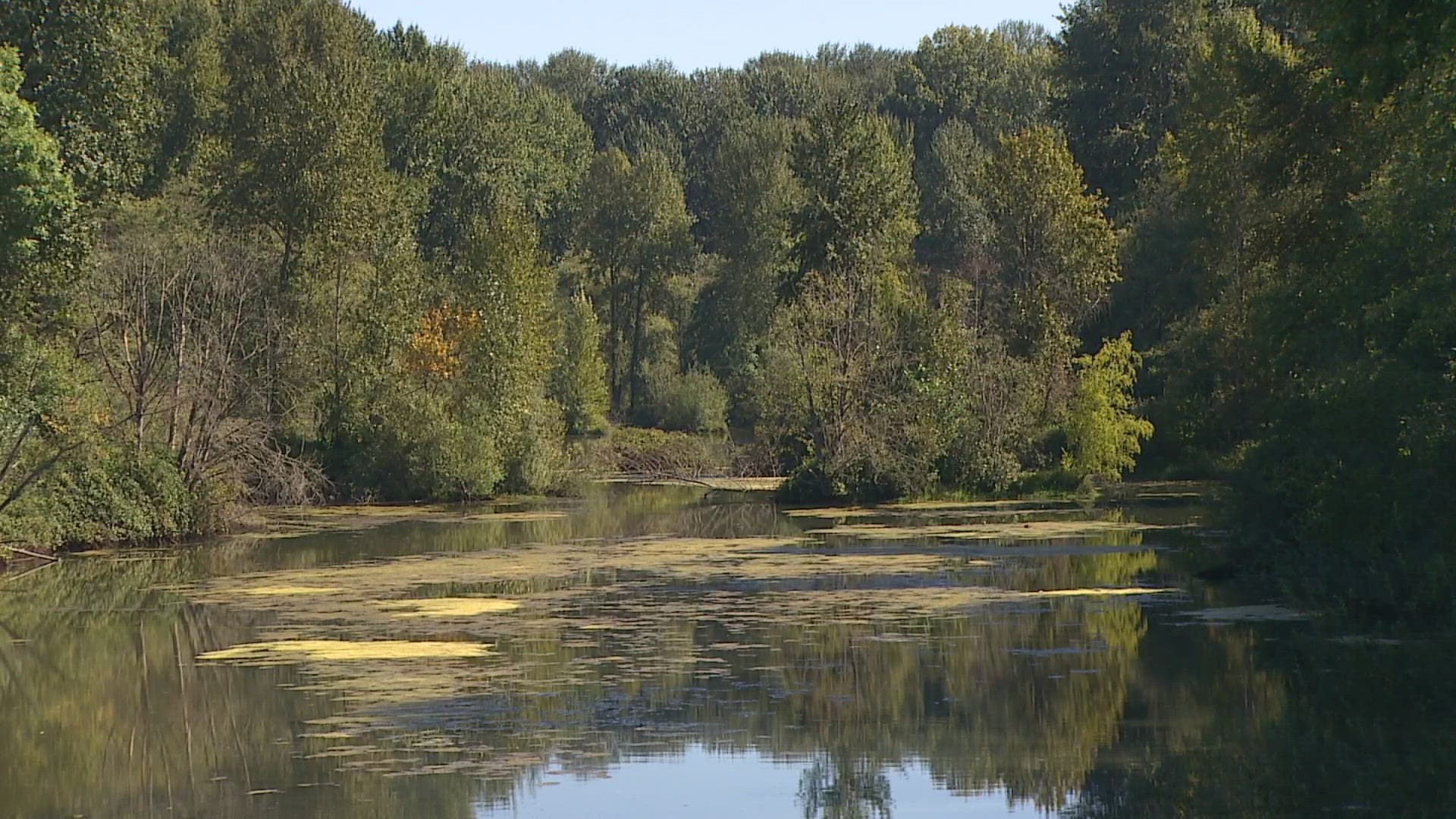RENTON, Wash. — The Washington Department of Ecology is overseeing clean-up after discovering what appears to be around 100 gallons worth of cooking oil in the Black River in Renton.
"It was really extensive," said responder Agustina Cartagena-Mclean. "It was covering pretty much this whole basin area, there was at least some heavy coverage. We're trying to mitigate the damage to the environment because it's a very sensitive area, we're trying to minimize how much of the wooded debris we cut back, because ducks, birds, fish love that area, love those spaces."
At this point, it's unclear whether it was an accidental spill or an intentional, illegal dumping, but there are no clear entry points for spillage. Ecology said it's checked samples with restaurants in that area, but they didn't match up; it's taking tips on oil collection services, for example, that might not be following environmental guidelines. To learn more about reporting a spill or to find contact information to make a tip, click here.
While cooking oil may not be toxic, it can be dangerous for wildlife. In this case, at least one bird- a blue heron - was killed, and two others were impacted. Fish fell victim too.
"It's going to float on the top of the water, it's going to prevent oxygen from making its way into the water column, for fish or any other water critter," Cartagena-Mclean said. "Also, birds, any oil that gets on their feathers, it's going to work the same way as diesel or any other oil, it's just not toxic. They still can't fly. They still can't clean themselves. They still can't hunt."
Along with finding answers, the Department of Ecology hopes to raise awareness about the impacts of substances infiltrating waters- and that dumping oil into water is illegal. Illegal dumpers can be subject to fines and cover the costs of recovery.
"An accidental release with a report versus an illegal dumping and no report, huge difference in the end score that we're going to charge someone," Cartagena-Mclean said.
It's not advisable to put cooking oil down the drain at home. It's best to put it in a container, let it cool and solidify it before throwing away.

